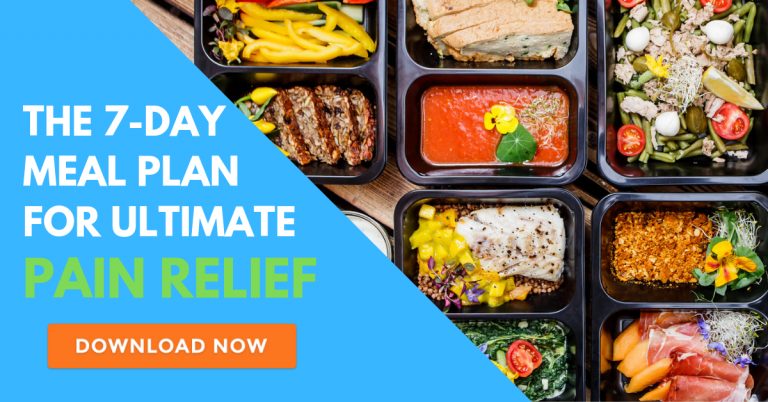
Every minute you take in 15 to 20 breaths — that’s more than 20,000 breaths a day.[i] So it goes without saying that your lungs have their work cut out for them.
With each inhalation, the oxygen you breathe in gets transferred from your lungs into your bloodstream and to each and every cell in your body, sustaining your very survival.
Your lungs also receive quite a bit of exposure to pollutants from the air you breathe. Exhaust, cleaning chemicals, solvents, paints and even fragrances are just a few examples of toxins that reach your lungs.
The chronic inhalation of polluted air is known to promote widespread inflammation in your body,[ii] which sets the stage for various chronic diseases, including lung diseases.
As in the rest of your body, chronic inflammation is dangerous for your lung health. As written in the Journal of Inflammation Research:[iii]
“In the lung, inflammation is usually caused by pathogens or by exposure to toxins, pollutants, irritants, and allergens. During inflammation, numerous types of inflammatory cells are activated. Each releases cytokines and mediators to modify activities of other inflammatory cells. Orchestration of these cells and molecules leads to progression of inflammation.
Clinically, acute inflammation is seen in pneumonia and acute respiratory distress syndrome (ARDS), whereas chronic inflammation is represented by asthma and chronic obstructive pulmonary disease (COPD).
Because the lung is a vital organ for gas exchange, excessive inflammation can be life threatening. Because the lung is constantly exposed to harmful pathogens, an immediate and intense defense action (mainly inflammation) is required to eliminate the invaders as early as possible. A delicate balance between inflammation and anti-inflammation is essential for lung homeostasis.”
6 Anti-Inflammatory Foods for Healthy Lungs
As you may know, your diet can play a major role in chronic inflammation, as many foods are either pro- or anti-inflammatory. A diet rich in anti-inflammatory foods, and specifically those that also offer additional supportive nutrients for your lungs, is absolutely essential to maintain and protect your respiratory health.
If you want to keep your lungs strong and well, try eating more of these top foods for healthy lungs. This is especially important if you are a current or former smoker, as the right foods can help enhance healing.
6. Kiwi
Kiwi is rich in vitamin C, an antioxidant that has been shown to protect the lungs, promote better lung function and even help prevent the development of chronic obstructive pulmonary disease (COPD).
5. Salmon and Sardines
These fish are rich in anti-inflammatory omega-3 fats, which have been shown to help improve lung function in people with COPD.
4. Yellow, Orange and Red Fruits and Veggies
Foods including carrots, squash, red peppers, papaya, watermelon and tomatoes are rich in carotenoids, which are known to reduce the risk of lung cancer.[iv]
3. Broccoli and Other Cruciferous Veggies
Broccoli, cabbage, cauliflower, Bok Choy and kale are examples of cruciferous veggies that are known to lower lung cancer risk.[v] They also contain a compound, sulforaphane, that has been found to help remove debris and bacteria from the lungs.[vi]
2. Apples
Apples contain an antioxidant called quercetin that may help protect your lungs from air pollutants. Eating apples has been linked to greater lung capacity and better lung function.[vii]
1. Flavonoid-Rich Fruits and Veggies
Flavonoids are plant pigments that are anti-inflammatory, antimutagenic and anticarcinogenic. Certain flavonoids, including epicatechin, catechin, quercetin, and kaempferol, appear particularly useful in protecting the lungs, and have been shown to lower the risk of lung cancer among smokers.[viii] Strawberries, green and black tea, onions, beans, apples and Brussels sprouts are examples of such flavonoid-rich foods for your lungs.
Read more:
-
12 Best Anti-Inflammatory Foods
-
7-Day Meal Plan for Ultimate Pain Relief
-
How to Boost Your Immune System Right Now
References:
[i] American Lung Association, Your Lungs
[ii]Circ Res. 2011 Mar 18;108(6):716-26.
[iii] Journal of Inflammation Research December 2008, Volume 2009:2, pages 1-11
[iv] Am J Epidemiol. 2002 Sep 15;156(6):536-47.
[v] Cancer Epidemiol Biomarkers Prev January 2009 18; 184
[vi] Sci Transl Med. 2011 Apr 13;3(78):78ra32.



Thank you for ALL the advice on anti inflammatory foods and other items I have read from your web site.
Unfortunately the big item that is missing from the majority of information/dis-information is TRUTH.
Having read much of YOUR information I believe you have, and from what I read the opportunity to give us the truth in what’s good for us and what’s not good for us.